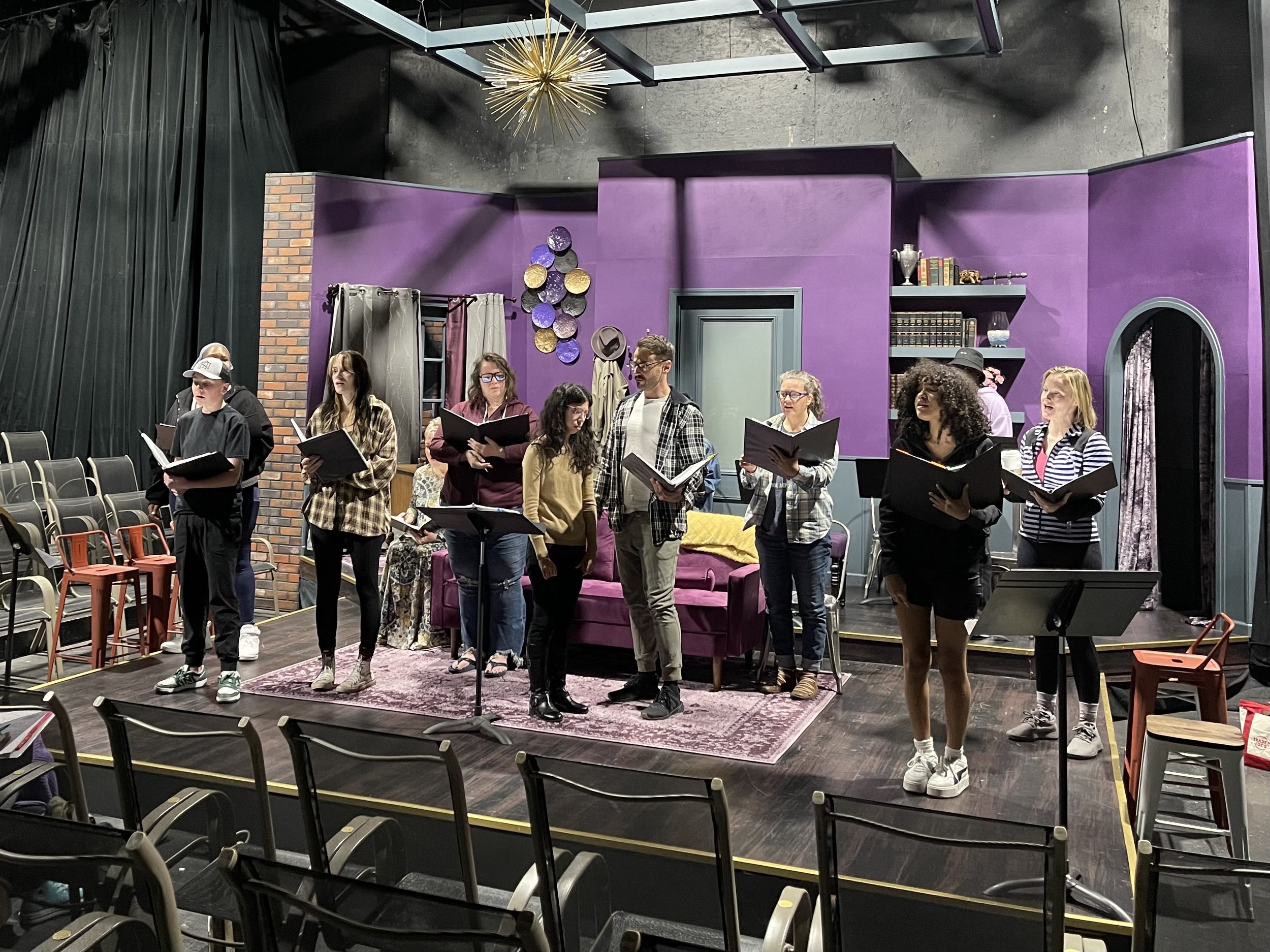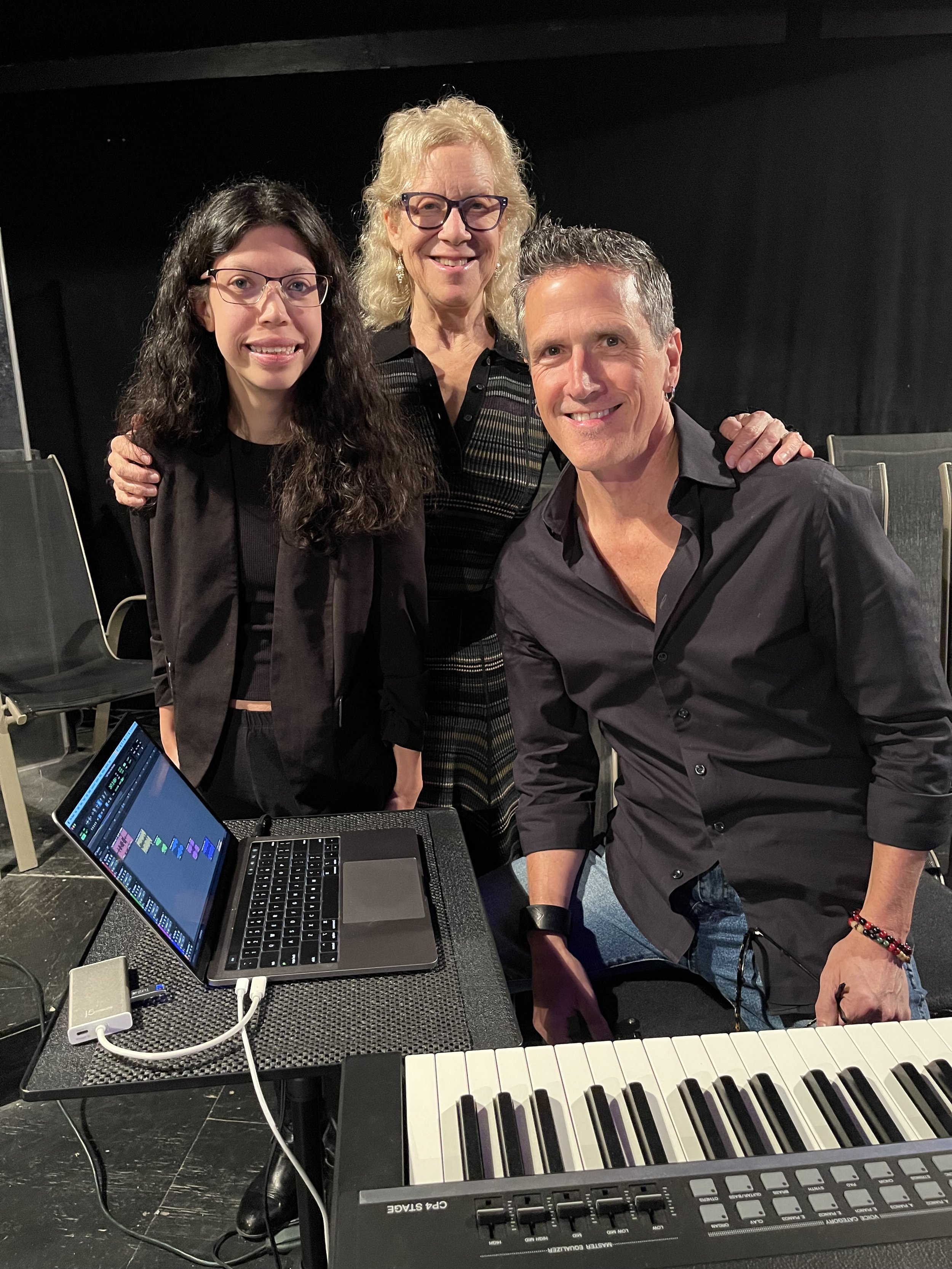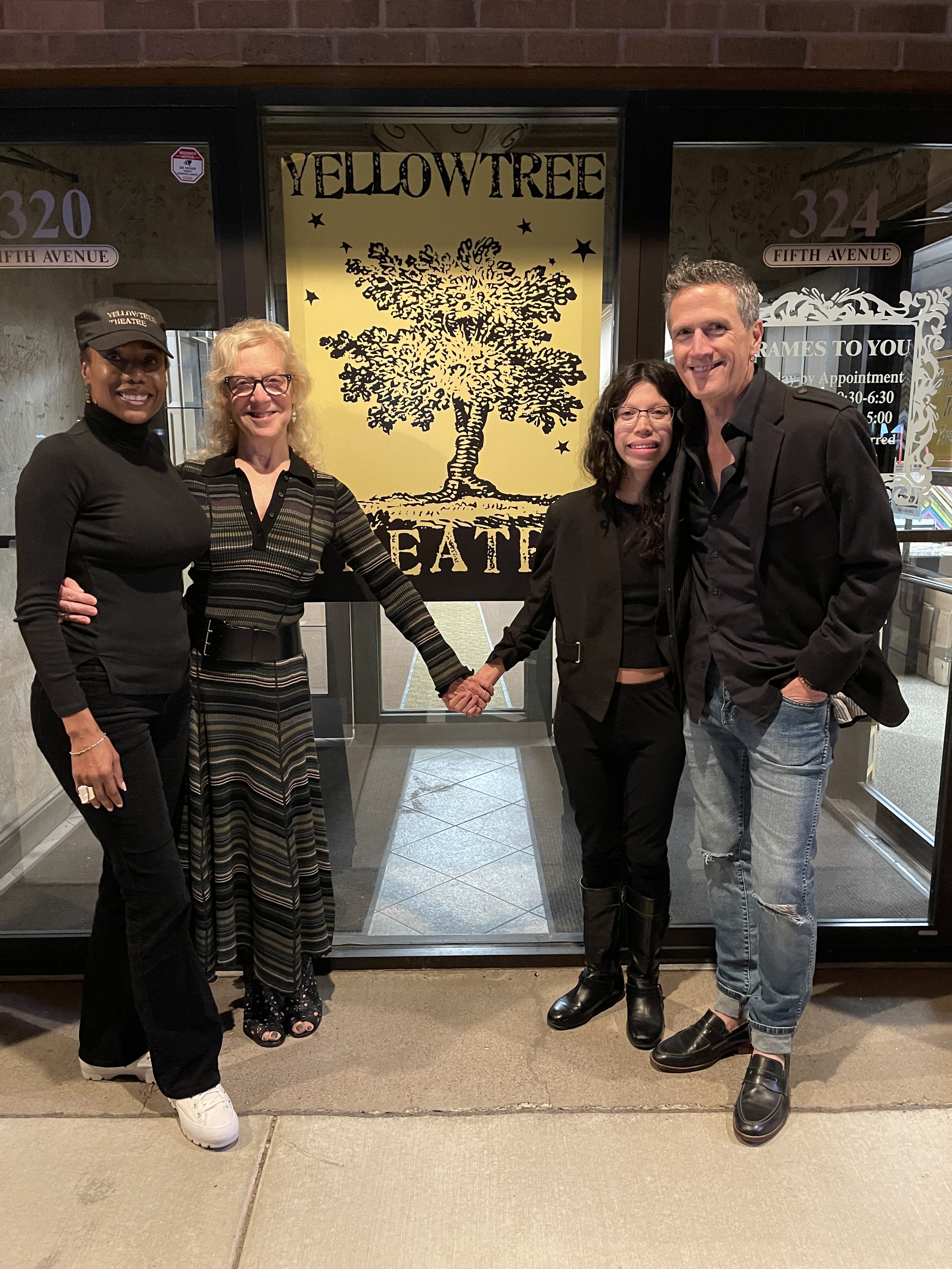You Get Another Call
Four or five years ago, a producer sponsored a contest. He asked for two-person scenes/songs between famous couples, real or imaginary, and promised that those selected would be published. Danny and I thought it would be nice to be published, so we entered.
Four or five years ago, a producer sponsored a contest. He asked for two-person scenes/songs between famous couples, real or imaginary, and promised that those selected would be published.
Danny and I thought it would be nice to be published, so we entered. Our piece was selected. The producer’s office reached out to ask if we would rewrite the song as a solo because they decided some variety would be nice. We rewrote the song.
That was years ago. We heard from the producer’s office a couple of times, for what I don’t remember, but it’s been ages since they last contacted us. It’s clear that this promised publication is not happening.
And that is the world of Musical Theater Writing.
But nothing is ever a waste of time. We like the scene and the song. We asked Belén Moyano and Demond Green to record the song for us, and it’s now available on all the streaming services. Thank you Jessie Glass for the fantastic graphic.
A Play by Lauren Kahane
Clearly, it’s better to be a finalist than not be a finalist. And Danny and I have been a finalist twice recently. Regretting Almost Everything was a finalist for NAMT. And Mimosa: The Disobedient Plant was a finalist for Circle in the Square Theatre School’s Emerging Writer Residency.
Clearly, it’s better to be a finalist than not be a finalist. And Danny and I have been a finalist twice recently. Regretting Almost Everything was a finalist for NAMT. And Mimosa: The Disobedient Plant was a finalist for Circle in the Square Theatre School’s Emerging Writer Residency.
Most recently, Danny and I interviewed for a week-long residency this coming summer to work on Mimosa. And Tommy and I have spoken with someone about the possibility of a workshop for The Girl Who Cried Different later this year.
In the meantime, I’ve started writing a play. It’s called, This is a Play by Lauren Kahane, and it’s inspired by the hellish process of my mom’s move from the house she loves into a senior residence. It’s been a frustrating process, for all of us. Particularly frustrating — in fact incomprehensible for me — is her attachment to objects she didn’t even know she had. Thousands of them. And her unwillingness to let them go, even though she knows she won’t have room for them where she’s going.
As a result of my inability to get rid of her stuff, I go home every day and go through my stuff. Which I then take to Goodwill.
The only thing I know about the play is that, at the end, the character based on me, will have completely emptied her house. She will not have a plate to eat off, a pillow to put her head on, or a change of clothing. And she will be blissfully happy.
Common and Extraordinary
It’s been about a year and a half since we released the Regretting Almost Everything concept album featuring the glorious Beth Leavel and inimitable Jeff Blumenkrantz. Because of Beth, Jeff, and our producers Kathy Sommer and Matt Anthony, the album is wonderful. And I’m proud of the songs Danny and I wrote. And the show, too.
It’s been about a year and a half since we released the Regretting Almost Everything concept album featuring the glorious Beth Leavel and inimitable Jeff Blumenkrantz. Because of Beth, Jeff, and our producers Kathy Sommer and Matt Anthony, the album is wonderful. And I’m proud of the songs Danny and I wrote. And the show, too.
William Finn told me to write what only I could write: The story of a long marriage. A story of extraordinary moments masked by the mundane.
I believe there’s a tendency to confuse what is “common” with what is “ordinary.” What I mean is, I think people reflexively assume that what is “common” is, by definition, also “ordinary.”
But that’s so, so wrong. Falling in love is common, but it’s not ordinary. Having a child is common, but not ordinary. Sex is common but, when done well, not the least bit ordinary. In fact, falling in love, having children, and sex are among the most extraordinary things we experience as humans. And that’s what Regretting is about.
The Girl Who Cried Different Workshop
Under the direction of Executive Artistic Director, Austene Van, The Girl Who Cried Different had a two-week workshop at Yellow Tree Theatre in Osseo, Minnesota which culminated in an invite-only reading on October 6. The cast included Harley Wood, Jennifer Grimm, Mariella Elm, Erika Soukup, DeZhane Antionette, Hannah Laursen, Egypt Bennett, Grace Kelly, Jane Frolland, Joey Lavine, Trejur Jones, Angie Haigh, Julie Madden, Jamecia Bennett, and Joel Liestman with Stage Management by Brandon Raghu.
The Cast of The Girl Who Cried Different
Under the direction of Executive Artistic Director, Austene Van, The Girl Who Cried Different had a two-week workshop at Yellow Tree Theatre in Osseo, Minnesota which culminated in an invite-only reading on October 6. The cast included Harley Wood, Jennifer Grimm, Mariella Elm, Erika Soukup, DeZhane Antionette, Hannah Laursen, Egypt Bennett, Grace Kelly, Jane Frolland, Joey Lavine, Trejur Jones, Angie Haigh, Julie Madden, Jamecia Bennett, and Joel Liestman with Stage Management by Brandon Raghu.
Lauren Kahane, Tommy Barbarella and Mariella Elm
Austene Van, Lauren Kahane, Mariella Elm and Tommy Barbarella
It was an invaluable experience for many reasons. Yes, it was illuminating to get to hear it out loud — we hadn’t heard it before. (Not even a table read). And it was also fantastic to workshop it with people who are active members of the Minneapolis “disabilities” community in the room.
Thanks and gratitude of Austene Van and Yellow Tree Theatre, Bruce and Jean Johnson for their generous support, and Lisa, Mia and Robby — Tommy and Mariella’s family — for their love and support. I am very grateful that somehow, Fate led me to Tommy and Mariella and this very special project.
After They’ve Gone
I began writing After They’ve Gone in 2011, when myyounger son was a sophomore at UW-Madison. I had recently become an “emptynester” — an expression I HATE by the way — as had many of my friends. And I knew I had to write about it.
I began writing After They’ve Gone in 2011, when my younger son was a sophomore at UW-Madison. I had recently become an “emptynester” — an expression I HATE by the way — as had many of my friends. And I knew I had to write about it.
For a myriad of reasons I have no interest in going into, saying goodbye to your last kid is a big deal. Walking past empty bedrooms is a big deal. Regardless of how you feel about it, it’s a huge life change.
And write about it I did. Though I had written Join the Club, After They’ve Gone was my first serious attempt at writing an original full-length musical.
I had the good fortune of working with composer Paul Libman. Paul is a wonderful composer and was a far more experienced musical theater writer than I was. And he did not make things easy for me.
Paul did not automatically set what I sent him. If I sent Paul a lyric he didn’t like, he either wouldn’t set it or pretended he never got it. He often sent me music that needed more words — or fewer words. He told me — often — that something I’d written wasn’t good enough. We also fought about the story and the behavior of the characters.
I learned so much from him. He placed importance on the integrity of the music and its form. He held me to a higher standard of craft. Ultimately, all the pushback resulted in a better show. And we’re still friends.
There were three readings: One at Chicago Dramatists, one at The Porchlight Music Theatre, and one at Princeton University as part of my 35th college reunion.
The show was never produced.
Since Paul and I wrote After They’ve Gone, I’ve gotten my MFA in Musical Theatre Writing from Tisch and written many other musicals. Hopefully, I’ve gotten better. I’ve also changed over the last 13 years, as has the world. For these reasons, I wouldn’t — couldn’t write the show today.
But I’m proud of it. From a craft standpoint, it’s not bad. The show’s got heart. It speaks the truth. AND, perhaps most importantly, it validates the experience of the millions of women who almost never have their life experience reflected back and validated in a musical written by a woman who’s been through it, too.
With Paul’s permission, I’ve decided to release many of the demos of songs from the show. I mean, why not? It’s so easy to release music now. Maybe someone will hear a song and like it. Who knows?
PS. Here’s why I hate the expression, “Emptynester:” My house was not only a home for my children. My husband and I live here, too. When my kids left, the house wasn’t empty. And it still isn’t.




